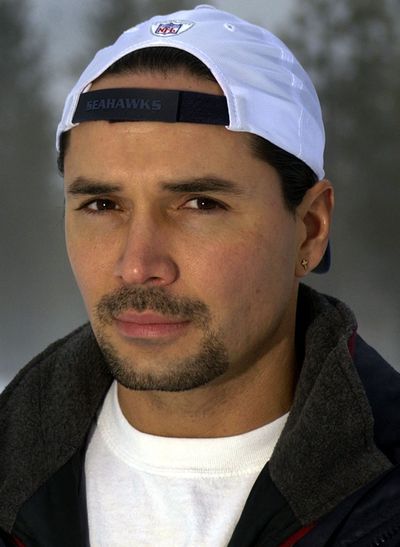Former agent wins judgment against BIA
Garvais fired after alleging corruption

A former federal law enforcement agent, who was fired after he investigated police corruption on the Spokane Indian Reservation, has won a $400,000 lawsuit against the Bureau of Indian Affairs for malicious prosecution.
The ruling in U.S. District Court for Eastern Washington by senior Judge Justin Quackenbush was an emphatic condemnation of the bureau for the treatment of its own agent, Duane Garvais, at the behest of the Spokane Tribe.
“The BIA maliciously caused the institution and continuation of unfounded criminal proceedings against Duane Garvais in Spokane Tribal Court in retaliation for the proper performance of his duties in investigating thefts by BIA patrol officers with close connections to the Tribe,” Quackenbush ruled Wednesday after a non-jury trial.
Garvais, a retired U.S. Marine and former Colville Indian Reservation police officer, was hired by the BIA in 1999 as a criminal investigator and assigned to the Spokane Reservation. In May 2001, Garvais was investigating drug trafficking on the reservation when he learned that two fellow officers were stealing car stereos and other equipment, according to court documents.
One of the officers was a Spokane tribal member and the other was a tribal descendant. Both were closely connected to the tribal council, then under the chairmanship of Alfred Peone.
Garvais and his immediate supervisor, Deputy District Commander Glen Melville, investigated and referred the matter to the U.S. attorney’s office in Spokane.
In response, the Spokane Tribal Business Council passed a resolution calling the alleged theft by the accused officers a “prank.” The council demanded that BIA District Commander Ed Naranjo remove Garvais from his assignment on the Spokane Reservation and called for an investigation into how the agent accounted for the funds he used to make undercover drug purchases and pay informants, according to court documents.
The BIA transferred Garvais and terminated his investigation into the alleged crimes of the reservation officers. The bureau’s Internal Affairs Division then launched a criminal investigation of Garvais, conducted by an Albuquerque, N.M.-based investigator named David Little.
Quackenbush ruled that even before Little began his investigation it had been determined the allegations against Garvais would be referred for prosecution “to appease the tribe and retaliate against Garvais for his appropriate investigation of the patrol officers.”
Little forwarded his report to the U.S. attorney’s office in December 2002, but when it became apparent that the office would not prosecute Garvais, Little forwarded the report to Spokane tribal prosecutors. Tribal Court issued a warrant for Garvais, who was arrested at the Omak Stampede by the nearby Colville tribal police and “extradited” to the BIA’s detention facility on the Spokane Reservation, where he was held without bond.
“The tribe’s retaliatory animus toward Garvais for his investigation of a tribal member and tribal descendant could not have been more obvious,” Quackenbush wrote.
While headed for a detention hearing for her husband, Garvais’ wife, Lovina Louie, was approached by Little who told her, “I’m going to get Duane, whether I have to go tribal, state or federal – I will get him,” according to court documents.
Garvais, who is of Native American descent but not an enrolled member of any tribe, was fired as a special agent after the BIA determined he had been wrongly hired under the bureau’s “Indian preference provisions” despite the fact that hundreds of other “Indian descendants” remain employed under the same guidelines.
In 2003, Garvais filed a civil rights claim in Federal Court in Spokane against the BIA and its Spokane Reservation officers, Greg Carter, Ted Wynecoop and Bill Matt Jr., who he said conspired to have him arrested.
In 2004, in a habeas corpus ruling upheld by the 9th U.S. Circuit Court of Appeals, Quackenbush ordered the Tribal Court to dismiss the charges against Garvais.
Subsequently, Quackenbush narrowed the scope of the former agent’s lawsuit to leave only the claim of malicious prosecution against the sole defendant, the federal government.
On Wednesday, the judge ruled that Garvais and his family “suffered substantial emotional distress and turmoil as the result of the wrongful action of the BIA at the behest of and in association with the Spokane Tribal Council and its agents and employees.”
Contacted Thursday at his home on the Coeur d’Alene Indian Reservation in Idaho, Garvais thanked “the Creator for being with me and listening to my prayers” and everyone that stood by him during his ordeal.
“Clearing my name is probably the utmost important thing to me next to my faith in God,” Garvais said, adding that in law enforcement, “your credibility and reliability is gold.”
A spokeswoman for the Spokane Tribe did not return a call for comment on Thursday.